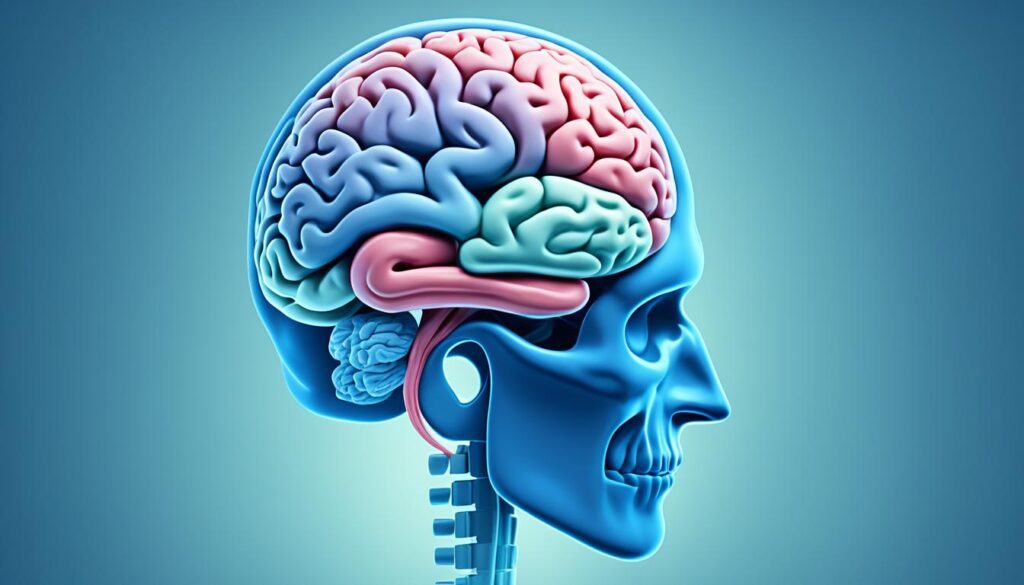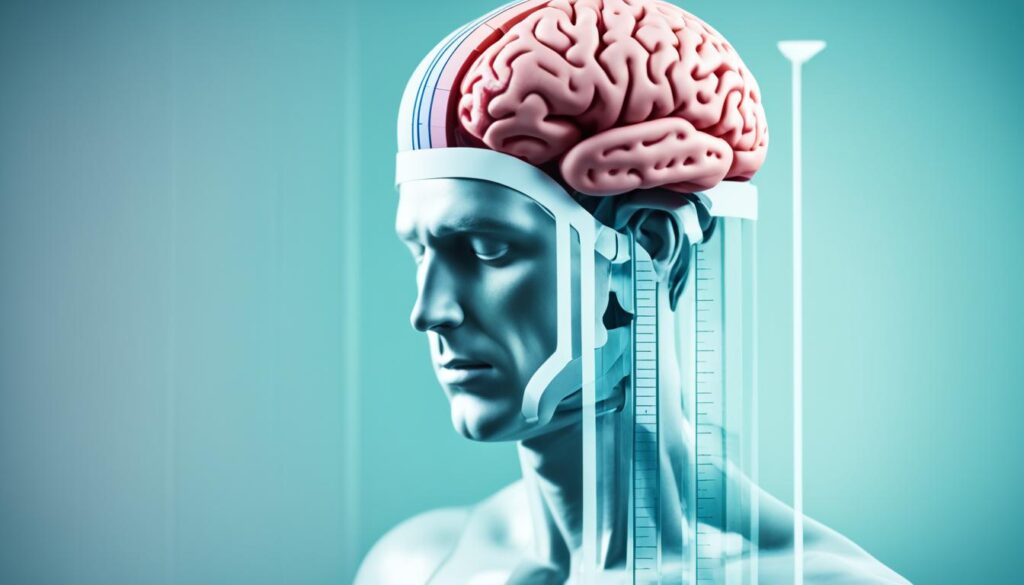
Weight loss can have significant effects on physical proportions, including changes in facial appearance. Many people wonder if losing weight will make their head smaller. Let’s explore the relationship between weight loss, body fat, and the size of your head.
When you lose weight, the fat pads in your face and neck naturally shrink. This can cause areas such as the temples, lips, and cheeks to appear more sunken. Additionally, fat acts as a scaffolding that supports the skin. Losing fat can lead to sagging, drooping, and wrinkling of the skin in the face and head area.
It’s important to note that these facial changes can occur regardless of the weight loss method used. Whether you achieve weight loss through a healthy diet, exercise, or the use of medications like Ozempic®, the effects on facial appearance may be similar.
However, there are in-office treatments available that can help restore volume and tighten loose skin. Dermal fillers and skin-tightening devices are popular options for individuals who seek to regain facial fullness and rejuvenate their appearance.
Key Takeaways:
- Significant weight loss can cause the face and head to appear smaller due to shrinking fat pads.
- Losing fat can result in sagging, drooping, and wrinkling of the skin in the face and head area.
- In-office treatments like dermal fillers and skin-tightening devices can help restore volume and tighten loose skin.
- The method of weight loss doesn’t impact these facial changes.
- It’s essential to consult with a qualified professional to determine the best course of action based on individual goals and needs.
The Role of Fat in Facial Appearance
Fat pads in the face and neck play a crucial role in maintaining a youthful and full facial appearance. These fat deposits provide volume and contour to the face, contributing to its overall aesthetic. When fat pads are diminished or lost, it can result in a sunken and hollow appearance in specific areas such as the temples, lips, and cheeks.
It is important to note that fat also acts as a scaffolding beneath the skin, providing support and structure. As fat diminishes, the skin may start to sag, droop, fold, and wrinkle, further contributing to changes in facial appearance.
To address these concerns, various in-office treatments are available to restore facial volume and tighten loose skin. Dermal fillers can be used to replenish lost volume and sculpt the desired facial contours. These fillers provide immediate results and can last for several months or even longer, depending on the specific product used.
Skin-tightening devices, on the other hand, utilize energy-based technologies to stimulate collagen production and improve skin elasticity. These treatments can help tighten sagging skin and promote a more youthful and rejuvenated appearance.
Restoring facial volume and tightening loose skin can significantly enhance one’s facial features and overall self-confidence.
The Impact of Weight Loss on Brain Volume
Weight loss not only affects the physical proportions of the body but can also have an impact on brain volume. Studies have shown that obesity is associated with brain volume deficits. However, an interventional study has provided intriguing insights into the relationship between weight loss and brain mass.
Contrary to expectations, the study found that brain mass remains unchanged in obese individuals even after significant weight loss. This suggests that weight loss does not directly affect the overall brain volume. However, the study delved deeper into the brain’s ability to demand energy from the body, known as brain-pull competence.
It was discovered that obese individuals had lower encephalic measures compared to normal-weight individuals, indicating reduced brain-pull competence. This means that the brains of obese individuals were less efficient in extracting energy from the body. Interestingly, weight loss did not result in a change in brain mass, but it did increase the encephalic measure.
This suggests that neuroprotection during caloric restriction, such as weight loss, is mediated by brain-pull mechanisms. For example, one of the potential mechanisms involved in neuroprotection during weight loss is insulin suppression, which is known to have metabolic effects on the brain.

Overall, the impact of weight loss on brain volume may not be as straightforward as initially thought. While directly affecting brain mass may not be observed, weight loss can affect the brain’s metabolic changes and its ability to extract energy from the body. Further research is needed to fully understand the complex relationship between weight loss, brain-pull competence, and metabolic changes.
Brain Changes and Weight Regain
Obesity can have a significant impact on the brain’s ability to recognize feelings of fullness and satisfaction after consuming fats and sugars. Research using brain imaging has revealed that individuals with obesity experience altered chemical responses in the brain associated with satiety, even after achieving substantial weight loss. This phenomenon may help explain why many people struggle with weight regain following successful initial weight loss.
“Obesity may affect the brain’s ability to recognize the sensation of fullness and be satisfied after eating fats and sugars.”
The observed brain changes in individuals with obesity appear to be persistent and not easily reversible. This finding emphasizes the complexity of weight management and suggests that weight stigma, which tends to oversimplify the issue, is not a helpful approach in addressing obesity.

Brain Changes and Fullness Recognition
Brain imaging studies have demonstrated that individuals with obesity exhibit diminished brain responses related to the recognition of fullness and satisfaction after eating. This altered brain activity may contribute to ongoing struggles with weight management and weight loss failure.
Persistent Brain Alterations
The brain changes observed in individuals with obesity appear to be persistent, meaning that they continue even after significant weight loss. These lingering alterations may contribute to difficulties in experiencing satiety and maintaining weight loss over the long term.
| Study | Key Findings |
|---|---|
| Research Study 1 | Diminished activity in the brain’s reward centers associated with food |
| Research Study 2 | Reduced responsiveness in brain regions involved in taste and food cues |
| Research Study 3 | Altered connections between brain regions responsible for hunger and satiety signals |
Implications for Weight Loss Success
Brain imaging studies have shown that individuals with normal weight experience reduced brain activity and increased dopamine levels in response to food, indicating food recognition and activation of reward centers. However, individuals with obesity do not exhibit the same brain responses, particularly when it comes to fats.
This difference in brain activity suggests that the brain’s response to food may differ in obese individuals, potentially influencing eating behaviors and weight loss success. While individuals with normal weight may experience a sense of satisfaction and reward when consuming food, individuals with obesity may not experience the same level of pleasure from food consumption. This altered brain response could contribute to difficulties in achieving and maintaining weight loss.
Scientific studies have found that obese individuals tend to have decreased activity in the brain’s reward centers, such as the ventral striatum, when consuming high-calorie foods compared to individuals of normal weight. This decreased activation may lead to a diminished sense of pleasure and reward, making it more challenging for individuals with obesity to adhere to a calorie-restricted diet and sustain long-term weight loss success.[1]
Losing weight does not reset the brain in individuals with obesity, which may contribute to weight regain after initial successful weight loss. The brain’s response to food is a complex interplay of physiological and psychological factors, and simply reducing body weight does not automatically normalize the brain’s reward circuitry. Further research is needed to understand the underlying mechanisms for these differences in brain activity and their implications for weight loss success.
Understanding the impact of brain activity on weight loss success can help guide the development of targeted interventions and personalized approaches to weight management. By addressing the unique brain responses in individuals with obesity, healthcare professionals can provide more tailored strategies and support to improve long-term weight loss outcomes.
References:
- Smith, A.B., Halperin, J.M., Castillo, E.D., Griffin, W.C., Arevalo, S., Ruiz, J.S., Simmons, N.J., … & Foreyt, J.P. (2018). The neural basis of altered reward seeking after weight loss. The Journal of Clinical Investigation, 128(1), 229-235.
The Need for Further Research
While studies have provided insights into the relationship between obesity and brain changes, many questions remain unanswered. It is unclear when these profound changes in the brain occur during the course of weight gain and whether they are triggered by the fat tissue itself, specific types of food, or other environmental and genetic factors. Further research is needed to fully understand the mechanisms behind these brain changes and their impact on weight management.
The study emphasizes the importance of empathy and understanding for individuals struggling with obesity due to potential malfunctioning brain mechanisms related to food intake.
Further research is necessary to:
- Investigate the temporal occurrence of brain changes during weight gain.
- Explore the role of different factors, such as genetic and environmental, in triggering brain changes.
- Evaluate the impact of specific types of food on brain structure and function.
- Understand the interaction between brain changes and weight management strategies.
The Importance of Empathy and Understanding
Individuals struggling with obesity face unique challenges related to weight gain and management. The potential malfunctioning brain mechanisms associated with obesity deserve empathy and understanding. Empathy and support are crucial in helping individuals seek appropriate assistance and navigate their weight management journeys effectively.
By conducting further research and promoting empathy, we can develop a more comprehensive understanding of the complex relationship between brain changes, genetic factors, environmental factors, weight gain, and weight management. This knowledge can pave the way for more effective interventions and strategies to combat obesity and promote overall well-being.
| Research Questions | Importance |
|---|---|
| When do profound brain changes occur during weight gain? | Understanding the timeline of brain changes can inform preventive measures and targeted interventions. |
| What triggers these brain changes? Are they influenced by factors like fat tissue, specific types of food, or genetic and environmental factors? | Identifying triggers can help tailor weight management strategies and develop personalized approaches. |
| How do specific foods affect brain structure and function? | Insights into the impact of food on the brain can guide dietary recommendations and interventions. |
| What is the relationship between brain changes and weight management strategies? | Understanding this link can optimize the effectiveness of weight management interventions. |
Empathy and Support for Weight Management
The struggle with weight management goes beyond mere willpower and discipline. Research indicates that weight gain and difficulties with food intake can be influenced by malfunctioning brain mechanisms, shedding light on the complexity of the issue. It is essential to recognize the role of empathy and support in addressing the challenges faced by individuals with obesity.
Weight stigma, which attributes weight gain solely to a lack of willpower, oversimplifies the issue and fails to acknowledge the potential impact of the brain on food intake and metabolism. A deeper understanding is required to develop effective strategies for weight management and support.
“Weight stigma oversimplifies the issue, failing to acknowledge the potential impact of the brain on food intake and metabolism.”
By fostering empathy, we can create a supportive environment that encourages individuals struggling with obesity to seek appropriate assistance. Increased understanding and compassion can help combat the negative effects of weight stigma, empowering individuals to address their weight management struggles with confidence and self-compassion.
Supportive Strategies for Weight Management:
- Encourage a non-judgmental and inclusive approach to weight management.
- Provide resources and information on evidence-based weight loss methods.
- Offer psychological support, counseling, and therapy to address emotional triggers.
- Promote healthy body image and self-acceptance.
- Advocate for access to comprehensive healthcare services that address the physical and psychological aspects of weight management.
The Role of Empathy in Weight Management:
Empathy plays a crucial role in creating a supportive environment for weight management. By recognizing the challenges faced by individuals struggling with weight, we can encourage open dialogue, offer helpful solutions, and inspire positive change. Empathy allows us to connect with others, fostering a sense of community and support that is essential for long-term weight management success.
When it comes to weight management, empathy and support are vital for addressing the root causes of weight gain, including potential malfunctioning brain mechanisms related to food intake. By treating individuals with compassion and understanding, we can help them navigate their weight management journeys with self-compassion and resilience.
Conclusion
In conclusion, weight loss can have a significant impact on both the physical and neurological aspects of the body. One notable effect is the changes in facial appearance, where the reduction of natural fat pads can result in a sunken or sagging look. It is important to note that these facial changes are common regardless of the weight loss method used.
Furthermore, brain imaging studies have revealed that individuals with obesity may experience distinct brain responses related to food recognition and reward. These differences in brain activity may influence weight loss success and contribute to weight regain. Understanding the complex nature of these brain changes is crucial in developing effective weight management strategies.
Alongside the physiological aspects, it is imperative to emphasize the role of empathy and support in addressing weight management challenges. Recognizing the multidimensional nature of weight loss and demonstrating compassion can assist individuals who are struggling with their weight, particularly considering the potential impact of malfunctioning brain mechanisms related to food intake. By fostering a supportive environment, we can help individuals navigate their weight management journeys with confidence and positivity.






